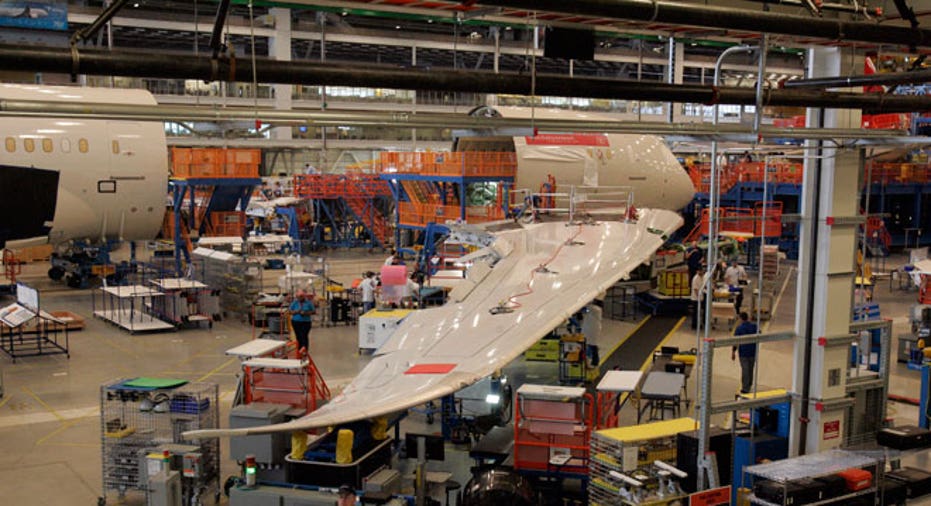Strong GDP Revision Further Muddies Rate Hike Decision

Second-quarter GDP was revised sharply upward Thursday, an overall positive for the health of the U.S. economy but further muddying the waters regarding the timing of an interest rate hike.
The stronger-than-expected revision to 3.7% from an earlier reading of 2.3% complicates the Federal Reserve’s decision because it strengthens the view that the U.S. economy is recovering while global economies are floundering.
Which leaves the Fed in a pickle.
Global markets have been in an uproar in recent weeks, roiled by a selloff in China’s stock markets and signs that China’s economy is slowing. The turmoil led to several days of dramatic plunges by U.S. stock markets, declines that led to broad speculation the Federal Reserve would delay any plans to raise rates until later in the year or into 2016.
Investors, analysts and economists had widely believed the Fed would start raising rates at its September 16-17 meeting, a belief strengthened by comments from more than a few influential Fed policy makers.
The August selloff led to a sharp u-turn in perception and forecasts. Analysts at Barclays, for instance, shifted their predictions, saying a rate hike is now likely to be delayed until well into 2016.
But U.S. economic data has been consistently strong throughout the summer. Labor reports have been healthy, averaging well over 200,000 new jobs per month as the unemployment rate has fallen to 5.3%, the lowest level since before the 2008 financial crisis. This week alone saw strong housing and consumer confidence reports.
And now a robust upward revision to GDP.
“This major upward revision to Q2 US GDP growth will help quell anxiety about the US economy in the wake of the recent financial market turmoil,” wrote analysts at Oxford Economics. “Looking ahead, Oxford Economics sees consumer spending accelerating as stronger wage growth, solid employment, and subdued inflation bolster consumers’ purchasing power.”
Not surprisingly, not everyone agrees with Oxford’s rosy assessment.
Where ‘Doves’ and ‘Hawks’ Agree
Analysts at IHS Global Insight said the higher-than-expected GDP revision stems largely from companies building up inventories, which could cut into third quarter growth if sales are hurt by a global slowdown and consumers close wallets after reading lousy headlines from Wall Street.
“The Federal Reserve will pay more attention to financial turbulence than the positive revision to GDP…,” the IHS analysts wrote on Thursday, adding, “a riskier outlook for the last half increases the probability that the Federal Reserve will defer tightening until the financial waters are less choppy.”
Influential Fed member William Dudley offered a similar sentiment on Wednesday, while making sure not to rule out a September liftoff.
Dudley, the president of the New York Fed and the vice chair of the policy-setting Federal Open Market Committee, said a rate hike in September is “less compelling” than it was a few weeks age, but that the final decision would be based on the trajectory of economic data received between now and the next Fed meeting.
Also Wednesday, in an interview with the FOX Business Network, Kansas City Fed president Esther George essentially agreed with Dudley’s assessment, saying she also now is concerned about the possible impact of U.S. financial market volatility and China's economic problems on the U.S. economy.
As recently as last month, George called for approving the first rate hike at the FOMC meeting in July. Though she thinks the economy and jobs market has been improving enough to start talking about rate hikes, like Dudley, she now wants to "wait and see" how the data shakes out before supporting a rate rise.
Dudley is considered a ‘dove’ and George a ‘hawk’ in the debate over rate hikes, meaning Dudley has urged cautious approach toward raising rates while George has been critical of the Fed’s reticence to raise rates, arguing prolonged low rates could lead to runaway inflation.
In any case, the fact that both ‘doves’ and ‘hawks’ agree that the recent market turmoil is troubling suggests that while perhaps not entirely off the table, a September rate hike is now far less likely than it was just a week or so ago.



















